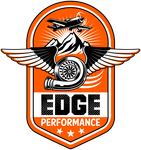- Forside
- Rekvisita
- Kabinvarme
- Varmere
- HEATER BYPASS VALVE WITH CABIN SIDE CONTROL LEVER
Edgeperformance AS Merdevegen 4E, 3676 Notodden 3676 Notodden Tlf. +47 920 33 926 - Foretaksregisteret 926 448 196
Vår nettbutikk bruker cookies slik at du får en bedre kjøpsopplevelse og vi kan yte deg bedre service. Vi bruker cookies hovedsaklig til å lagre innloggingsdetaljer og huske hva du har puttet i handlekurven din. Fortsett å bruke siden som normalt om du godtar dette.
Les mer
eller endre innstillinger for cookies.
Powered by 24Nettbutikk
- Adresse
- Merdevegen 4E, 3676 Notodden, 3676 Notodden
- Telefon
- +47 920 33 926
- E-postadresse
- webshop@edgeperformance.no
- Foretaksregisteret
- 926 448 196
- Theme primary color
- Logo background color
- Shop open for business




.png)







